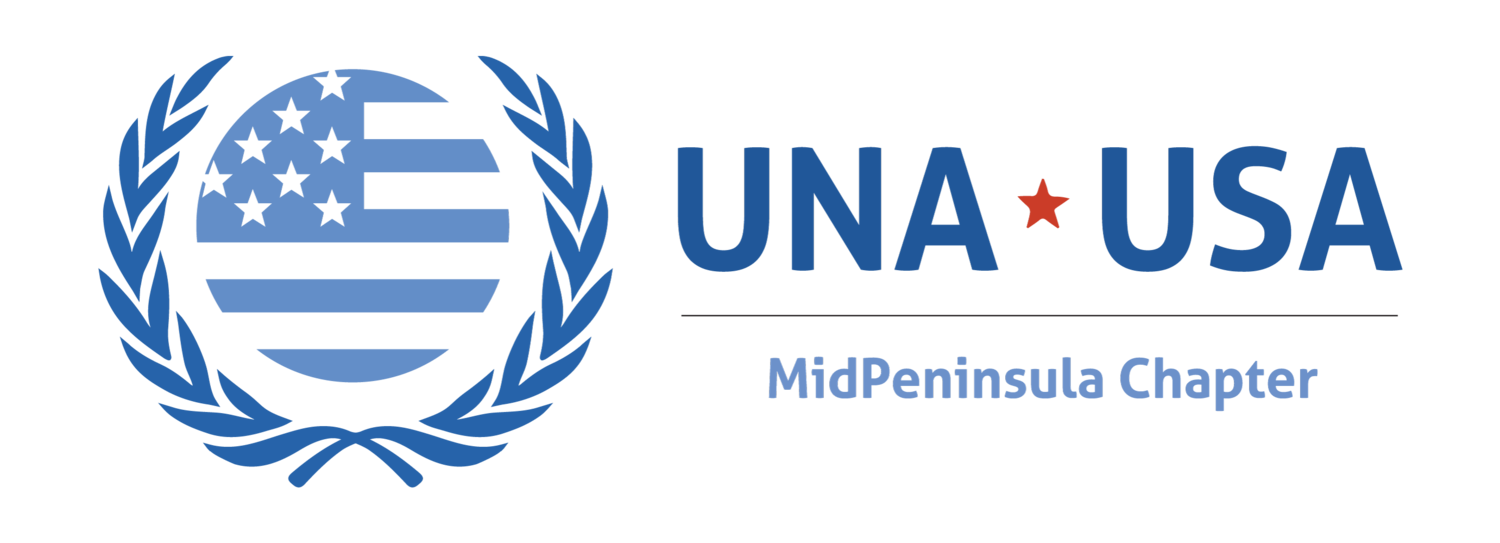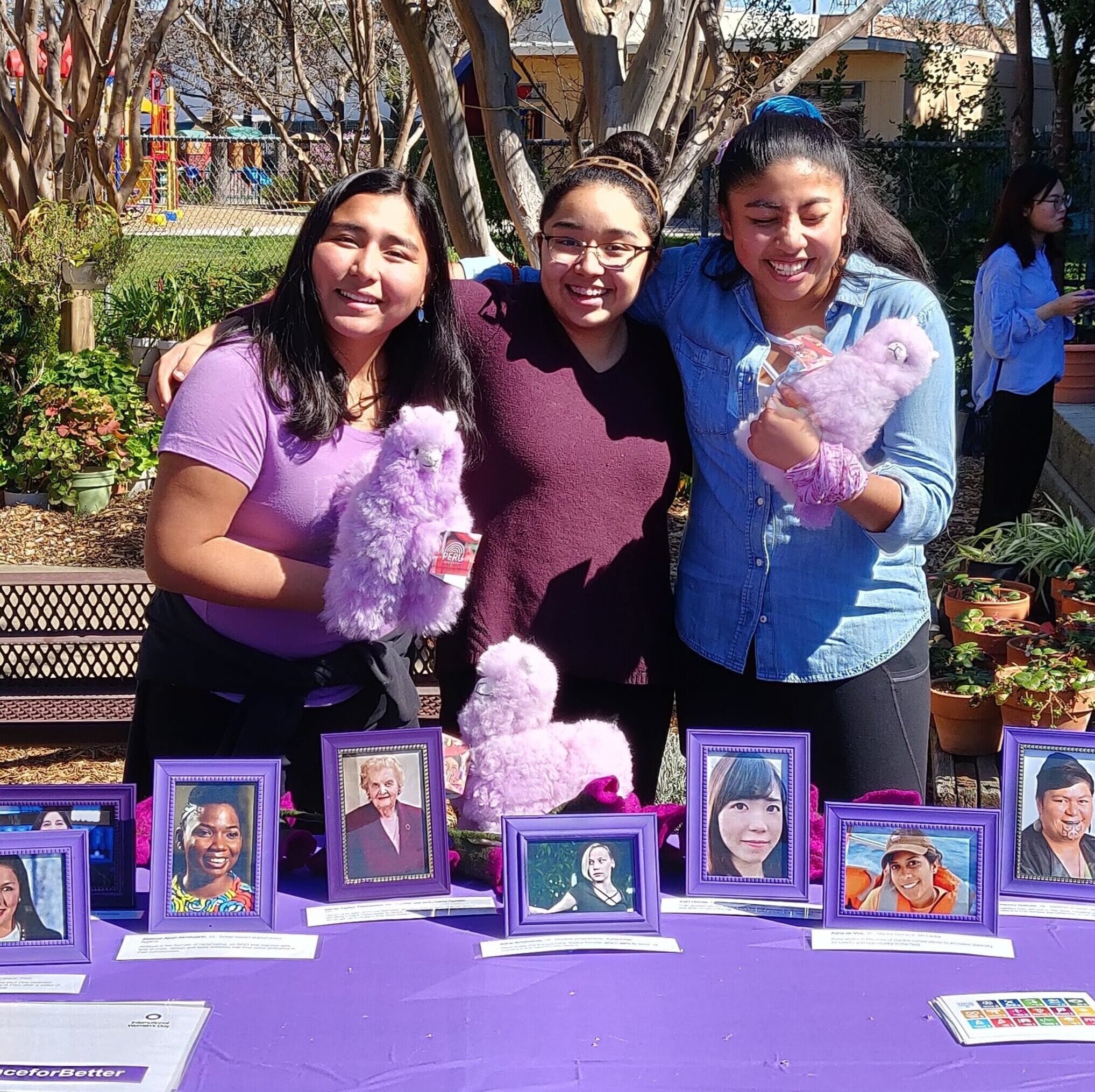
Gender Equality
Cities for CEDAW
UNA Midpeninsula is proud to be a part of the Cities for CEDAW campaign. CEDAW is the Convention on the Elimination of All Forms of Discrimination Against Women, a landmark UN treaty that affirms principles of fundamental human rights and equality for women around the world.
Unfortunately, the US is one of only 6 countries that has not ratified CEDAW. Building on the model of San Francisco, which implemented CEDAW as a local ordinance in 1998, the Cities for CEDAW campaign will establish CEDAW in cities and towns across the US. UNA Midpeninsula aims to pass a CEDAW ordinance right here in Palo Alto.
We are also working closely with sister campaigns for Santa Clara County and Mountain View.
Interested to join our movement? Become a UNA member to support our efforts, or email us at CEDAWpaloalto@gmail.com for more information.
UNA Midpeninsula Board Member Sarah Almond Pike before the Palo Alto City Council on 28 November 2016, promoting the Cities for CEDAW ordinance.
Cities for CEDAW Campaign in Palo Alto and Mountain View
On Monday, November 28th, two UNA Midpeninsula board members presented the Cities for CEDAW proposal to the Palo Alto City Council, with the aim to having the city join the ranks of San Francisco, Los Angeles and Berkeley in adopting the local ordinance to ensure gender equality. Steps would include carrying out a gender analysis of city operations, establishing an oversight body, and ultimately implementing CEDAW. The likely net fiscal impact of these steps would be minimal.
Follow us and get involved by writing CEDAWpaloalto@gmail.com!
Xavier Webb from UNA-USA gave an update at dance4women at Palo Alto Lean In about Rights for women bill coming to vote soon in local election.
Diversity Forum with Congressman Ro Khanna
UNA participated in diversity forum hosted by Congressman Ro Khanna in March 2018. The congressman led a dialogue on three key aspects of gender equity in the “leaky pipeline” of careers in the technology industry:
1. Entry, why are most applicants for tech jobs male, and what should be done to remedy this gap.
2. Retention, how do we make the working environment more supportive for all genders to thrive.
3. Promotion and leadership, how do we increase opportunities for leadership roles for all genders.
Leaders and panelist included:
Laura Gomez – CEO Atipica
Hannah Gordon – General Counsel San Francisco 49ers
Marci Harris – CEO and Founder POPVOX
Danielle Brown – VP Diversity and Inclusion Google
Nicole Issac – Head of Public Policy Linkedin
Amy Gonzales – VP Global Learning and Development – Women Unlimited
Parisa Naseralavi – Sr. Director of Finance – Cisco Systems
Cathrin Stickney – CEO – Parity.org
Congressman Ro Khanna hosted a dialogue on three key aspects of gender equity in the “leaky pipeline” of careers in the technology industry. VPs for Diversity from major Silicon Valley companies were present.
SDG 5: Gender Equality - Background
Goal: Achieve gender equality and empower all women and girls
Gender equality and women’s empowerment have advanced in recent decades. Girls’ access to education has improved, the rate of child marriage declined and progress was made in the area of sexual and reproductive health and reproductive rights, including fewer maternal deaths. Nevertheless, gender equality remains a persistent challenge for countries worldwide and the lack of such equality is a major obstacle to sustainable development.
Targets for Goal 5
5.1 End all forms of discrimination against all women and girls everywhere
5.2 Eliminate all forms of violence against all women and girls in the public and private spheres, including trafficking and sexual and other types of exploitation
5.3 Eliminate all harmful practices, such as child, early and forced marriage and female genital mutilation
5.4 Recognize and value unpaid care and domestic work through the provision of public services, infrastructure and social protection policies and the promotion of shared responsibility within the household and the family as nationally appropriate
5.5 Ensure women’s full and effective participation and equal opportunities for leadership at all levels of decision-making in political, economic and public life
5.6 Ensure universal access to sexual and reproductive health and reproductive rights as agreed in accordance with the Programme of Action of the International Conference on Population and Development and the Beijing Platform for Action and the outcome documents of their review conferences
5.A Undertake reforms to give women equal rights to economic resources, as well as access to ownership and control over land and other forms of property, financial services, inheritance and natural resources, in accordance with national laws
5.B Enhance the use of enabling technology, in particular information and communications technology, to promote the empowerment of women
5.C Adopt and strengthen sound policies and enforceable legislation for the promotion of gender equality and the empowerment of all women and girls at all levels






